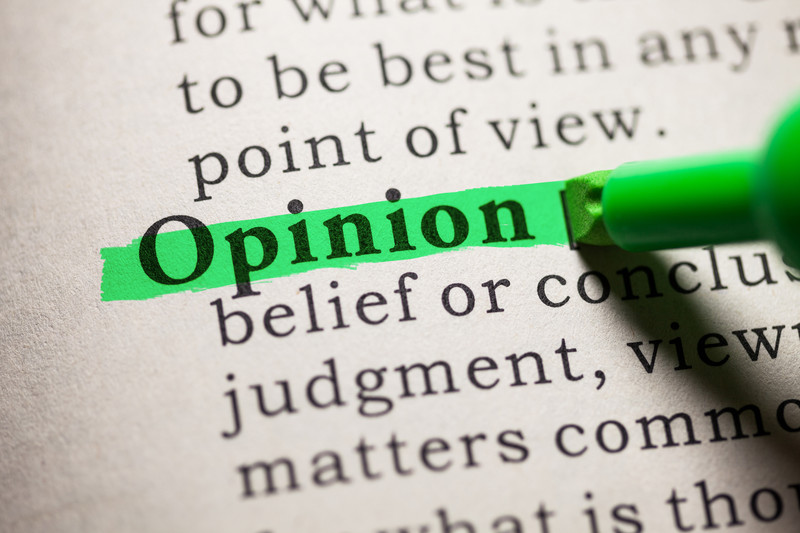Opinion: PTSD and veterans

Editor,
On Memorial Day, 99% of American families have the privilege of pausing to remember the faithfulness and honorable sacrifice of the one percent of families who serve in our military. Those of us, for example, who have had the opportunity to be in school recognize that that privilege was based on the stability and security which was accomplished by those courageous individuals, and their enduring families, who have protected our way of life. (Some extraordinary people, such as Dr. Ida Allen-Bergman, have both served our country in the military service and also devoted years to schooling in order to prepare to help the good people of Rhinelander). We are reminded that throughout history, some have been willing to step forward and to risk life and limb to protect our country and its citizens, and it is very encouraging and noble to take time to reflect, consider, and remember those who prioritized our wellbeing.
Those of us who did not serve in the military are also somewhat aware that Memorial Day is very, very different for those who did serve, and the memories they hold are not the same: while most of us remember parades, marching bands, tearful expressions of affection, and inspiring patriotic celebrations, those who served, suffered, and lost loved ones are often tormented with very different memories. With over 400,000 men and women returning from Iraq and Afghanistan with a diagnosis of Post-Traumatic Stress Disorder, (as well as half a million Vietnam veterans), the VA reports that each day 22 veterans commit suicide.
While there is great controversy regarding the accuracy of these statistics, this being such a sensitive and politically charged issue, it is well recognized that many veterans are chronically traumatized by memories of horror and loss which remain overwhelming and disabling years to decades after the events were first experienced. The U.S. Army described the process of addressing the crisis of PTSD as “trying to change a tire on a vehicle going 60 mph,” as the nature of PTSD is somewhat insidious- many of the most capable, gifted, and committed individuals can both function with extraordinary skill and effectiveness in one setting, and yet can suffer from profound difficulty and helplessness under other circumstances. While we applaud extraordinary breakthroughs that we enjoy as a result of modern scientific medicine, some conditions appear to be so complex and multi-factorial that they appear to defy the penetrating eye of the clinical scientist. PTSD remains a dreadful, debilitating crisis that undermines and wreaks havoc among the families of one of America’s most precious treasures- our veterans.
Yet not all battles, of course, take place on the theater of war. Many great men and women fight for the heart and soul of our country at home, in our communities. Pathologist Dr. Bennett Omalu, on performing an autopsy on Pittsburgh Steeler Mike Webster, (as portrayed in the movie Concussion, by Will Smith) identified chronic traumatic encephalopathy as the basis for mental illness in football players who incurred multiple brain injuries. He courageously stood against those, (primarily representing the NFL) who sought to undermine his credibility, career, and personal honor, and in doing so helped bring forward an awareness of the direct relationship between physical brain trauma and psychiatric disease. Further, the groundbreaking work of Dr. Mark L. Gordon, whose treatment protocol is embraced by the Warrior Angels, has contributed to restoring the health and vitality of about 2500 individuals on the basis of treating underlying brain trauma.* While the consensus in the medical community at large focuses on treating PTSD as a maladaptive social and psychological syndrome, (treatable primarily by means of psychiatric medications which seek to alleviate or diminish the symptoms of PTSD), there is increasing awareness among cutting-edge scholars that it is essential to treat the underlying brain trauma and other biological imbalances in order to restore cognitive, emotional, and physical wellbeing. It is very encouraging to see the pendulum beginning to swing, with increasing awareness that the roots of PTSD encompass more than the expressed emotional and psychological symptoms of insomnia, anxiety, feelings of desperation and isolation, fits of anger, and other neurological and psychological symptoms. As recently as November 2018, Dr. James Zender asks, in Psychology  Today, “Is It Post-Traumatic Stress or Traumatic Brain Injury?” apparently for the first time in current Psychology literature. Can the academic community step forward and bring to light these concepts and methods that will empower the medical community to meet the incredible challenge of helping the veterans who helped protect us?
Today, “Is It Post-Traumatic Stress or Traumatic Brain Injury?” apparently for the first time in current Psychology literature. Can the academic community step forward and bring to light these concepts and methods that will empower the medical community to meet the incredible challenge of helping the veterans who helped protect us?
Advanced Health is deeply grateful to our veterans, as well as being committed to helping the good people of Rhinelander to achieve the highest possible level of health, vitality, and wellbeing. In that regard, and in hopes of honoring our veterans and striving to give back as much as possible to build up and help support our veterans, the Clinic would be honored to sponsor a lecture/discussion of these concepts.
Dr. Jon Cotter, Advanced Health
*This sentence has been corrected from a previous version.
Leave a reply
You must be logged in to post a comment.

